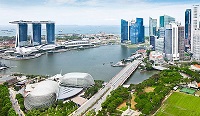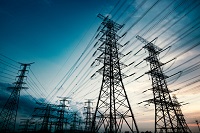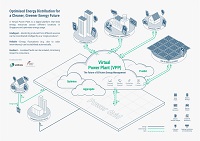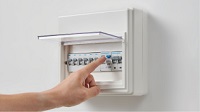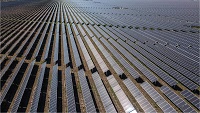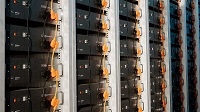The Energy Market Authority (EMA) has progressively liberalised the electricity retail market since 2001, and today, around 35,000 commercial and industrial consumers, or about 80 per cent of electricity demand, enjoy flexibility and choice in their electricity purchases (“Customised price plans for electricity may not cut bill size” by Mr Chan Yeow Chuan, and “Keep things simple, affordable” by Mr Ben Chen Bin; both published on Oct 26, and “Many issues to consider before rolling out smart meters” by Mr Chan Yeow Chuan; last Thursday).
By the second half of 2018, the remaining small consumers (mainly households) will be able to choose their electricity retailer and price plan, allowing them to better manage their energy usage and costs.
Consumers' geographical location will not affect the pricing plans available to them. Consumers who wish to continue to buy electricity from SP Services at the regulated tariff may still do so.
To better protect consumer interests in a fully liberalised electricity market, we are putting in place safeguards and are working with industry stakeholders on an online platform where consumers can compare price plans across electricity retailers.
As we introduce full retail competition, EMA is conducting a trial with PUB and Singapore Power on smart meters to enhance productivity and provide consumers with timely information on their consumption.
This trial will help determine the costs and benefits of rolling out smart metering solutions on a wider scale, as well as the technical performance (including accuracy, security and safety) of the smart metering solutions.
Juliana Chow (Ms)
Director
Corporate Communications Department
Energy Market Authority
Keep things simple, affordable - Mr Ben Chen Bin
26 October 2016
Monday's report ("Customised price plans for electricity in the pipeline") said that consumers can look forward to shopping for electricity the way they choose a phone plan.
I hope consumers will not end up paying more when multiple players are knocking on our doors, asking us to switch our electric meters.
My office is within a technology park that used to be owned by the Housing Board. It was transformed into a business park real estate investment trust a few years ago, after which, the management asked us to switch to a bulk electricity provider, citing savings.
We never saw any savings.
Two months ago, we moved to another block in the same park. The new unit was already wired and powered. However, the electricity provider insisted that we appoint a licensed electrical worker (LEW) who would work with its own LEW to turn on its supply.
We were required to pay $588.50 for the electricity provider's LEW, on top of paying for our own LEW - all to "turn on" circuits and electricity supply that had been there for years.
Did such market liberalisation lower or increase business costs?
Will new players make things more complicated for consumers?
More importantly, how do we trust new electricity suppliers to provide accurate and transparent billing? With a new supplier, especially at the start, it is difficult to have the same level of trust as we do with SP Services.
Furthermore, an electricity supplier may make attractive offers to entice building owners to switch suppliers. There is no guarantee the benefits will trickle down to tenants.
Ultimately, the bills are to be paid by tenants in most cases, not the building owner. The supplier may even squeeze more from tenants to make up for the costs of benefits it had to give building owners.
Market liberalisation always sounds good. It brings in new players and may rejuvenate a stagnant market.
But policymakers must consider how things will really play out in the market, and whether liberalisation will benefit a few industry players or the majority of end users.
Things as fundamental as water and electricity should not make our lives more complicated.
Customised price plans for electricity may not cut bill size – Mr Chan Yeow Chuan
26 October 2016
I am concerned about the plan to introduce customised price plans for electricity, since there are no assurances that this would translate into lower costs for consumers ("Customised price plans for electricity in the pipeline"; Monday).
Electricity from renewable sources currently costs more than that from fossil fuels.
Hence, if all electricity retailers must offer some degree of green energy, this may mean the electricity bill for Singaporeans will only increase in future.
As we have learnt from other industries in Singapore, opening up the electricity retail market to competition in itself may not guarantee lower prices.
For instance, although there has been competition in the telco market, it does not seem as if the average consumer has been paying less for his mobile phone plan.
As for the pay-TV market, one of the common grouses among football fans here is that the price of a monthly subscription to watch the English Premier League has been increasing over the years, amid "fierce" rivalry between Singtel and StarHub.
My other concern about the customised price plans is whether they will be as well disseminated as those for telecommunication.
Are all plans offered to everyone, no matter where they live? Would people living in some areas be constrained in the number of plans that they can choose from, depending on their proximity to electricity infrastructure?
If not all plans are available everywhere, wouldn't it mean that some Singaporeans could end up paying more?
Overall, it is always good to give people a choice, and if there are Singaporeans who don't mind paying a premium for green energy, then customised price plans would work great for them.
Many issues to consider before rolling out smart meters – Chan Yeow Chuan
27 October 2016
I have a number of concerns over smart meters ("Utility usage data via mobile app?" and "Wanted: Smart meters for households"; both published on Tuesday, and "Spurring change in utility usage"; yesterday).
First, are smart meters accurate? We know from experience with computers that electronic devices tend to malfunction when overheated.
Given our hot climate, would it not increase the risk of smart meters malfunctioning, leading to households being inaccurately billed?
Second, since these smart meters have a control function, in the event of an electricity outage to the meters, will this also cripple the supply of water and gas to households?
Third, given that smart meters rely on wireless Internet connections to communicate with utility companies, are they not vulnerable to cyber attacks? The recent cyber attack on StarHub suggests that Singapore is not immune to such malicious acts ("StarHub: Cyber attacks behind broadband outages"; yesterday).
Fourth, can smart meters cause electronic interference with Wi-Fi connections or other electronic gadgets within households?
In addition, can radiation from these electromagnetic devices cause cancer or have other detrimental health effects?
Also, will consumers be charged for these smart meters?
The entire smart meter infrastructure, together with the replacement of old meters, will come at a huge initial capital expense. Would these costs get transferred to consumers by way of higher utility bills?
A purported benefit of these smart meters is that they can allow consumers to see their utility consumption every half an hour.
But are there many people in Singapore who bother to check their meters daily? If not, wouldn't these meters be white elephants?
That said, with regard to the trial that will start in early 2018 and last for six months, I propose that it be lengthened to, perhaps, a number of years before a full roll-out, so that levels of consumer usage, durability and safety can be confirmed.
